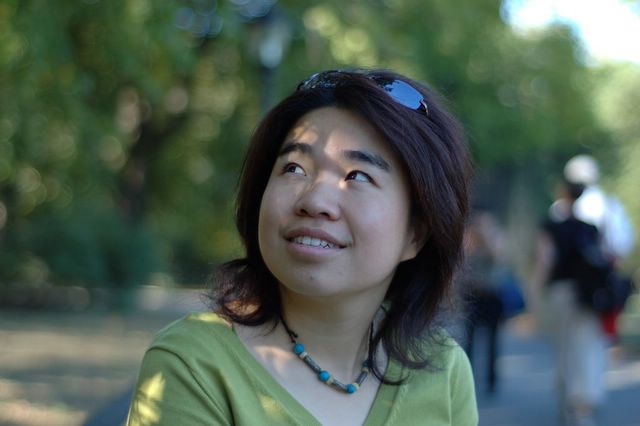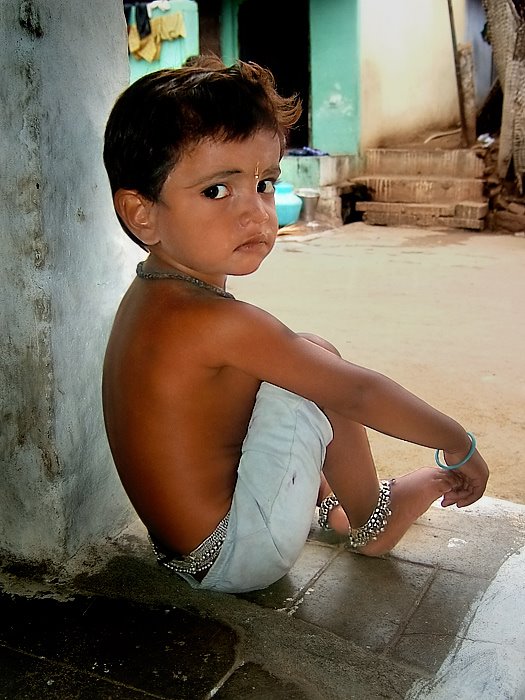
沈复,字三白,苏州人,生于乾隆二十八年(1763年),卒年无考,著有《浮生六记》一书。原作实则只存四记,即《闺房记乐》、《闲情记趣》、《坎坷记愁》和《浪游记快》。另有两记存题佚文为《中山记历》和《养生记逍》。此书最初以手抄本形式在社会上流传,后为苏州独悟庵居士杨醒逋在护龙街冷摊上瞧见,慧眼识珠,立即携回刻刊,由王韬作序,在东吴大学校刊《雁来红》上刊出。这一下,使这块文学“碧玉”出土问世,重放异彩 (http://news.xinhuanet.com/book/2004-12/06/content_2300092.htm)。六记从夫妇伉俪情深写起,直到写到夫妇阴阳永隔,文人落魄,将人生轮回的甘甜与悲苦娓娓道来。虽然不是鸿篇巨著,但是清淡的小品自有可人的味道。
不知怎的,昨天看了阿尔莫多瓦的Volver,一时之间竟不知道自己身在何处,觉得影片中间的六个女人的命运正是演绎了一出《浮生六记》。根据维基不知道的介绍:
“Volver (tr. "Return") is a 2006 Academy Award-nominated Spanish film by director Pedro Almodóvar. It was one of the films competing for the Palme d'Or at the 2006 Cannes Film Festival. It eventually won two awards: Best Actress (shared by the six main actresses) and Best Screenplay. Its premiere was held on March 10, 2006 in Puertollano, where the filming had taken place. Thematically, the film centers upon return both in the dead returning and in the form of cycles of re-occurrences……Almodóvar says of the story that “it is precisely about death...More than about death itself, the screenplay talks about the rich culture that surrounds death in the region of La Mancha, where I was born. It is about the way (not tragic at all) in which various female characters, of different generations, deal with this culture.
Almodóvar: Three generations of women survive easterly wind, fire, madness, superstition and even death through goodness, lies and an unlimited vitality. They are: Raimunda (Penélope Cruz), married to an unemployed worker, and her teenager daughter (Yohana Cobo). Sole (Lola Dueñas), her sister, who earns her living as hairdresser. And their mother (Carmen Maura), dead in a burning, with her husband. This character comes as an apparition first to her sister (Chus Lampreave) and then to Sole, even though the ones she had unsettled affairs with were Raimunda and her village neighbour, Agustina (Blanca Portillo). ‘Volver’ is not a surreal comedy, though it might seem so at times. The living and the dead live together without problems, but provoking hilarious situations and others full of deep and genuine emotion. It is a movie about the culture of death in my native region, La Mancha. My folks there live it in astonishing simplicity. The way in which the dead are still present in their lifes, the richness and humanity of their rites makes it possible for the dead to never really die. ‘Volver’ shatters all clichés of a dark Spain and shows a Spain that is as real as it is opposed. A white Spain, spontaneous, fun, fearless, fair and with solidarity.”
阿尔莫多瓦的电影就像是Diego Rivera的画和马尔克斯小说的混合,是超现实主义对色彩的致敬,是对当下的、地方的、传统的文化的喝彩,是对宏大叙事的反抗。当先锋电影和试验电影抛弃故事情节,完全转向技术试验和概念化,阿尔莫多瓦却能够静下心来将他的故事。他的故事开始看起来往往是惊世骇俗,但是渐渐的,从没有意义中产生出意义来,从没有结构中显现出结构来,最后总是呈现出不以伦比的人性光彩。他的故事是世俗生活的写照,但是又出离了世俗的生活,从对感情和人性的怀疑,又回到了对感情和人性的肯定。在他的故事里,那些疯狂和非理性的情节的张力,最后总是在欢笑中化解。他的色彩,上帝,他对于色彩的把握就像是女人选择自己的高跟鞋。他总是使用大量明亮的色彩,因此即便在最悲痛和黑暗的时刻,他的影片也充斥着明快的色彩,就像是斗牛场上的哭声,即便在最悲哀的时刻,人们仍然被对于生命的欢呼所包围。
Volver讲述了简单的故事。一家三代女人,为情所困,为生计所迫。祖母Irene 在愤怒中杀死了自己的丈夫和他的情人,因此不得不冒充成鬼魂和亲人一起生活。她为了得到女儿Raimunda 的谅解,又重新回到他的身边。Raimunda 小时候被父亲abused,生下了女儿 Paula。Paula 在情急之下,杀死了自己名义上的父亲。Raimunda 秘密埋葬了自己的丈夫,和女儿开始经营餐馆,开始新的生活。这时她的母亲也出现在她的身边,讲述了自己的经历。在巨大的痛苦中,这三代女人互相取得了谅解。 阿尔莫多瓦关心的是死亡,更是死亡之后,人们如何相处。死亡不是人与人关系的结束,而是新的可能性的开始。灵魂的归来,亲情的归来,人性的归来,这些都在人们的期待中变成了现实。一个童话的不能再童话的故事!


没有评论:
发表评论